The science department has already implemented new electives and will introduce a new freshman introductory class next year.
As with all things at Malvern, change is happening rapidly in this new era of 21st century learning. The science department is trying to ride the wave of progress as alters its focus toward integrated learning.
Integrated learning might sound like another cryptic buzzphrase related to education. Science Department leader Mr. Kevin Quinn explained the concept by first giving context on issues within the science curriculum.
“Some of those issues stemmed from not having a lot of choice in terms of what to study and when to study it,” Quinn said.
Quinn noted that four years ago, there were three different versions– academic, honors, and AP– of each course, including Biology, Chemistry, Physics, and Environmental Science. Essentially, a student would commonly take the same subject each year, but with a higher difficulty.
There was only one elective class, Marine Biology.
 “You wouldn’t qualify for any AP courses if you took an academic class,” Quinn said. “So you really had no choice at all for what you took, when you took it.”
“You wouldn’t qualify for any AP courses if you took an academic class,” Quinn said. “So you really had no choice at all for what you took, when you took it.”
Quinn then identified what he thought the key problem the curriculum had: the lack of connection between subjects. He explained that this causes students to have a compartmentalized view of science, which is not the best way to understand it.
“Science doesn’t exist in silos,” Quinn said. “We call some parts of it physics and other parts of it chemistry, but it’s all really one and the same thing.”
Integrated learning is the proposed solution to the issue. The science department wants to “integrate” multiple types of fields of science within classes, rather than just focusing on concentrated subject at a time, according to Quinn. He used the study of levers as an example to show what this integrated learning would look like.
“You may talk about levers in physics and engineering. If you look at your own arm, that is a perfect example of a lever. The way that operates is that the muscles connect to the bones in the upper arm to your lower arm, and that applies a force. You can talk about physics, but it also allows you to talk about your musculoskeletal system in biology,” Quinn said. “That is an example of great interplay where we don’t connect it as subjects where we could.”
Quinn said that students learn through either massive repetition or strong experience, and he thinks the science department should focus more on creating memorable experiences for students. He explained that results in better learning and also makes class more captivating.
“Doing repetitions of lever problems over and over again can get pretty boring and uninteresting. But we could get a human cadaver and dissect a leg that has a torn ACL to talk about levers and how your ACL helps you to run,” Quinn said.
To take action on this idea, the department is planning on replacing the traditional freshman Biology course next year with an integrated science course, according to science teacher Mr. Matthew Boccuti.
The course will explore science topics but view them from all angles of science. Quinn said that an example of a topic could be lightwaves, which has physical aspects and also biological aspects with the structure of the eye.
An integrated science course would have two main benefits for freshmen, according to Boccuti. He said that it would help remove the redundancies of re-teaching of the same topics in different classes, like levers or electricity.
Quinn explained that students could also be able to explore different fields of science they are interested in, which would help students know what classes they should study.
According to previous reporting by the Blackfriar Chronicle, the ninth grade academy begins in the 2017-2018 school year. Despite some similarities between the academy system as described and the science department’s integrated learning initiative, Boccuti said that they are not related.
Boccuti noted that the class is still a work in progress.
“The first seeds of [the integrated course] will start next year, but that is a bit of a cultural change,” Boccuti said. “We are planning on how to change the arc of all of this. If integration is where we want to be, what will next year look like to get us there?”
The science department has been reshaping this arc since three years ago when they combined Honors and Academic Biology into one introductory freshman Biology course. For last school year, they implemented a course called Physical and Chemical Systems in place of Academic Chemistry. This allowed for more freedom in choosing classes.
“After getting to know you in freshman Biology, either the teacher would recommend or the student would self select to either go into Honors Chem or Physical and Chemical systems,” Quinn said. “The point is to say that there are some foundational skills in science that you still want to work on before moving to an Honors level course… Coming out of Physical and Chemical Systems you have the option of going into Honors Physics or Honors Chemistry.”
The department also wanted to focus on offering more electives to increase course flexibility. Engineering, Astrobiology, and Modern Medicine have been introduced this school year as electives. Quinn said that these courses are great examples of integrated learning.
Boccuti teaches Astrobiology, which started in the second semester. The course explores life on other planets, and it is a mixture of a variety of fields according to Boccuti.
“What are the conditions for life? So we will be focusing on biology. How do planets form? How do solar systems form? So there will be some geoscience involved. What are the necessary conditions for life? So chemistry,” Boccuti said.
The course features many comprehensive projects throughout the year, and the year culminates in students designing a mock NASA mission to look for life in our solar system.
Senior Stephen D’Elia signed up for Astrobiology because he was interested in life outside of Earth. D’Elia enjoys the amount of depth within the course.
“I like how we go so deep into concepts with life on earth and potential life off Earth,” D’Elia said.
D’Elia just started the class in the second semester. He already has a project assigned, however. “Currently I have a project on the Ordovician Period of life,” he said. “Other than that the work has been pretty light.”
 Another class introduced in the second semester is Modern Medicine. Taught by Mr. Stephen Borish, the class studies how the body works and current research in medicine.
Another class introduced in the second semester is Modern Medicine. Taught by Mr. Stephen Borish, the class studies how the body works and current research in medicine.
“Modern Medicine is the application of anatomy and physiology,” Borish said. “It’s for guys who are interested in doing something in the healthcare field, or they want to learn about their body and are interested in medicine and how that whole field works.”
Borish said that students learn through dissections. The class will study a fetal pig, a pregnant cat, and even human body parts.
Some potential students were apprehensive about the dissections, according to Borish. “A couple guys dropped because of that,” Borish said. “But for the most part I think everyone [in the class] is interested in how their body works.”
Borish will bring in healthcare professionals to talk about their jobs and aspects of the body relating to what students are learning. They will also take field trips to hospitals and pharmaceutical companies to learn more about the medical field.
Borish initially thought of the idea for the class when he attended the Philadelphia Science Festival last April. The festival consists of various booths where people showcase demonstrations of science for kids.
“I went to the festival last year, and I saw Episcopal there and I was like, ‘Why don’t we have any Malvern students there?’ That’s when this idea came to me of starting a class where we have the ability to design something like that and present it at the festival,” Borish said.
For the final project, students will create a science experience for the 2017 Philadelphia Science Festival. They will work on the project alongside their normal classwork.
Along with developing the new class, Borish has also implemented a grading system which he calls the “trending model.” There are two grades for the course, each ranging from one to four, with four considered “mastery.” One grade is based on participation, and the other is based on knowing content.
“Then they come together and form your grade,” Borish said. “But I designed so you wouldn’t have to get a grade at the end, but it would start a conversation.”
Borish said that students are responding well to the class so far.
“For the most part, it has been very engaging,” Borish said. “Kids are interested in it.”
Quinn teaches Engineering along with Mr. Louis Osinski. Engineering, a year-long course, centers around building projects that can help the community. Quinn explained that the class gets students to think creatively rather than memorize formulas and terms.
“The course is focused on skills that students are not necessarily used to working on,” Quinn said. “They’re used to having a science course where the knowledge and the content focuses is front and center. In this course, it is about learning the competencies that you need in engineering and also in life.”
Engineering allows students to have flexibility to explore whatever they are interested in through projects. Senior Zach DeStefano said that Quinn and Osinski would choose a general topic or issue and then four or five projects that students can work on based on that topic. Students with similar interests will be placed in groups.
 “We can select one of [the projects] and further develop that,” DeStefano said.
“We can select one of [the projects] and further develop that,” DeStefano said.
DeStefano wants to study computer science and microbiology in college, but he used this course to try something new. “It gives me time to try different things,” DeStefano said. “It gives me a chance to work with physical things rather than the coding I usually do.”
DeStefano has completed several projects in the class. One of them was a cricket-smasher for scorpion food for the Malvern Zoo, as the biology lab with many animal specimens is known.
“It is a metal object that contains crickets and then there’s a battering ram that smashes through it, and the crickets are dropped down into a scorpion pit,” DeStefano said.
DeStefano worked with fellow senior Amir Webb to design, build, and implement the device in the Malvern Zoo. DeStefano explained that the functionality of the device was a big part of how they were graded.
“We implemented all of our devices. That was part of how our grading is done,” DeStefano said. “The grading is done contract-wise. We determine a contract, and our grades are the payment for the contract.”
Along with implementation, students had to show their progress along the way with prototypes, presentation, and following other design steps.
DeStefano recommends the class for anyone because students can develop their individual passions through different projects.
“It is definitely interesting to see the class in that regard. Different people pursuing different ideas, trying to build different things, trying to experiment with different things,” DeStefano said.
This type of open-ended exploration is the essence of integrated learning. Quinn wants students to study science with a broader picture in mind. He wants students to make connections between different subjects and see science for what it truly is.
“Science is not what you study, but it’s the way we study the universe,” Quinn said.


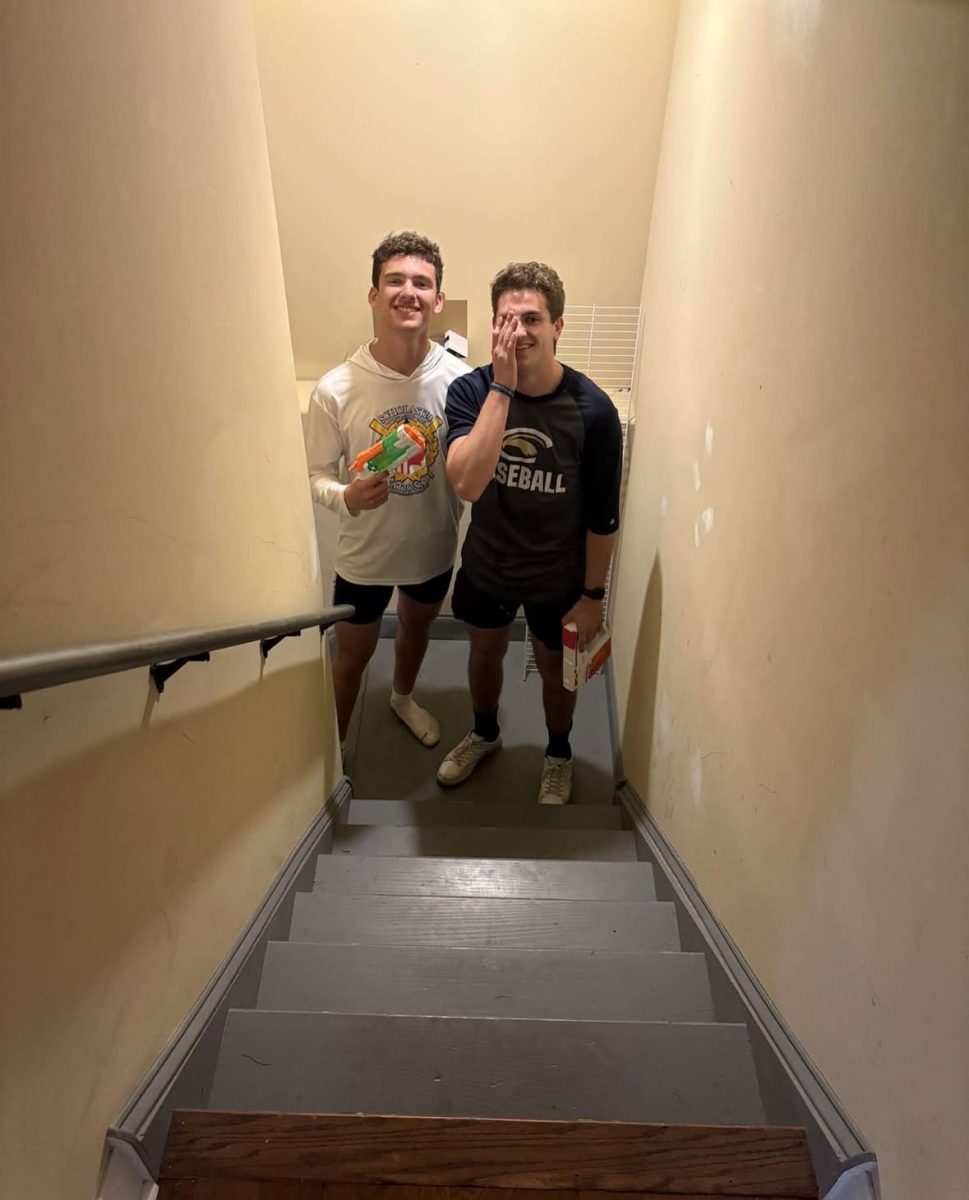
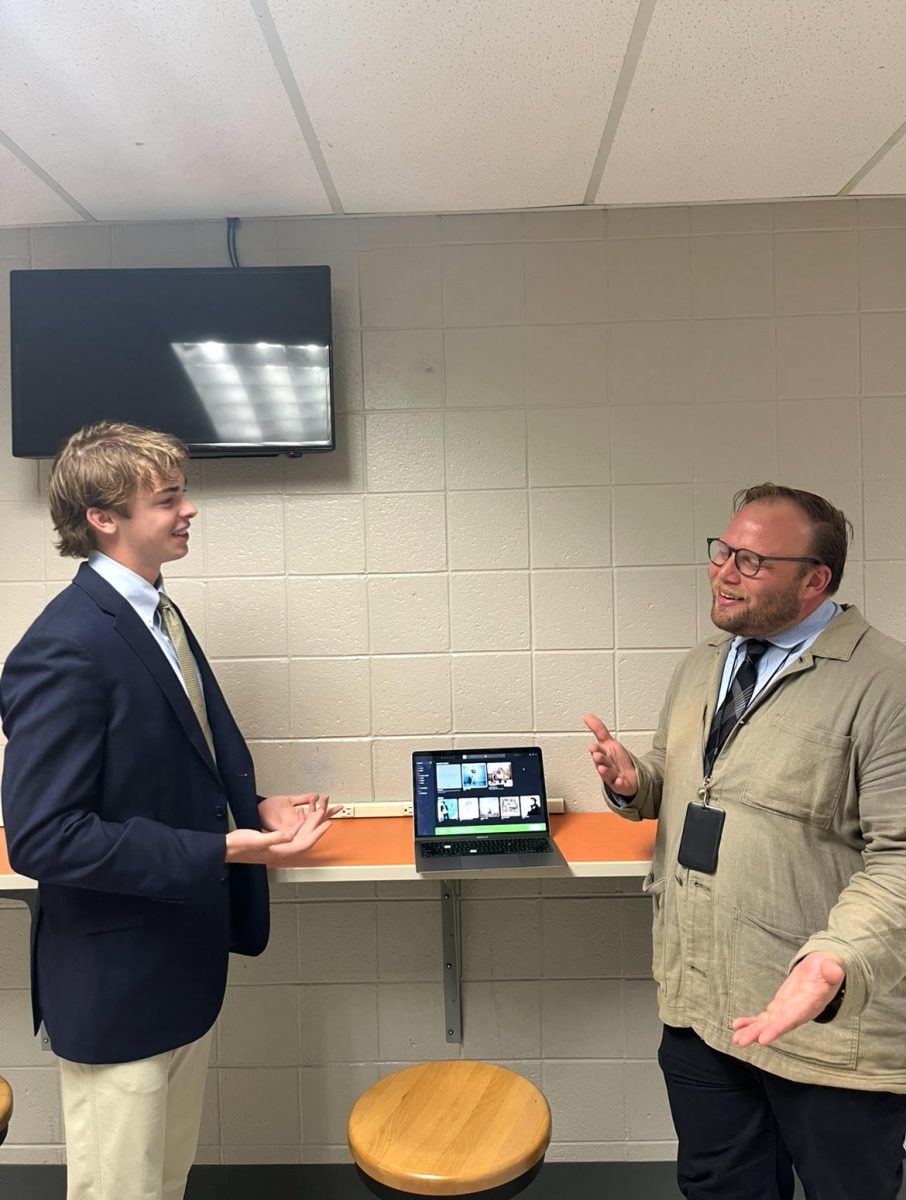
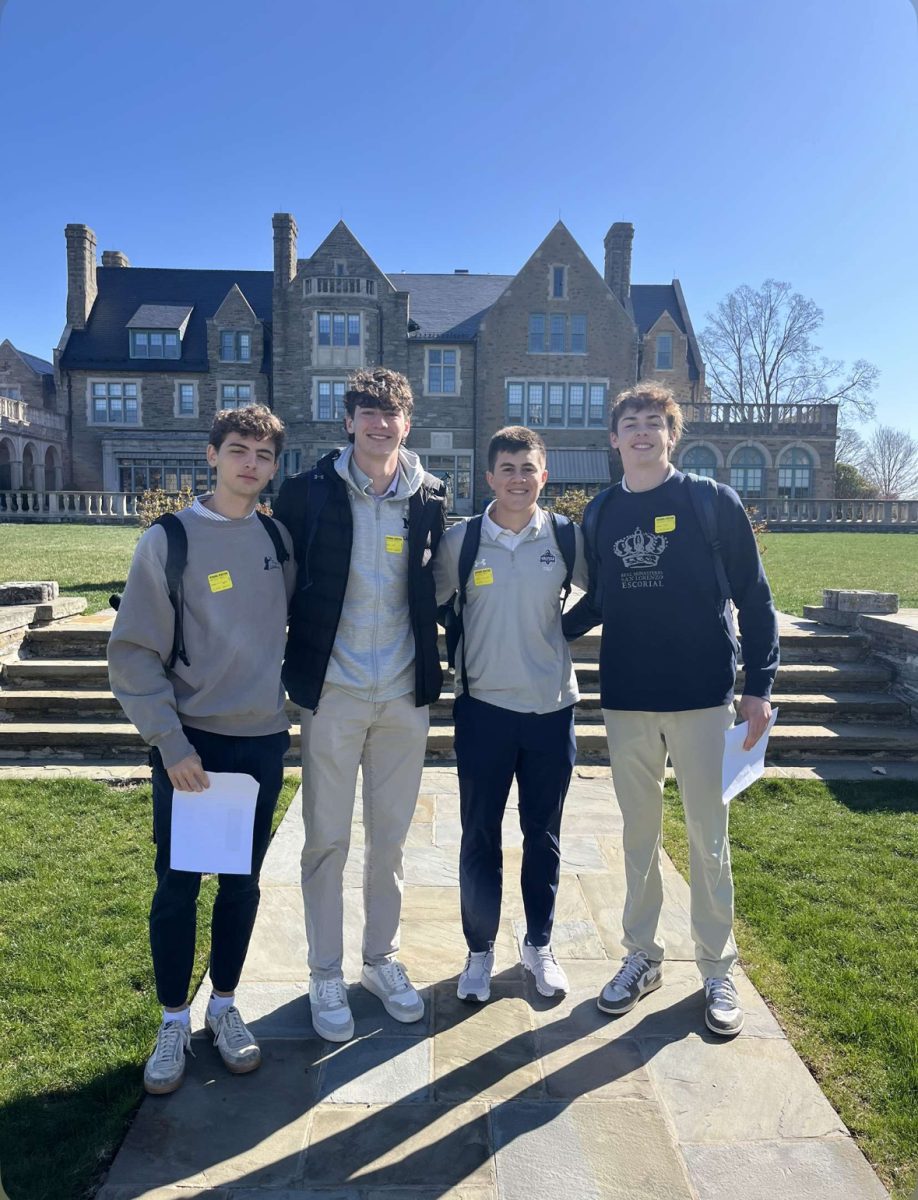

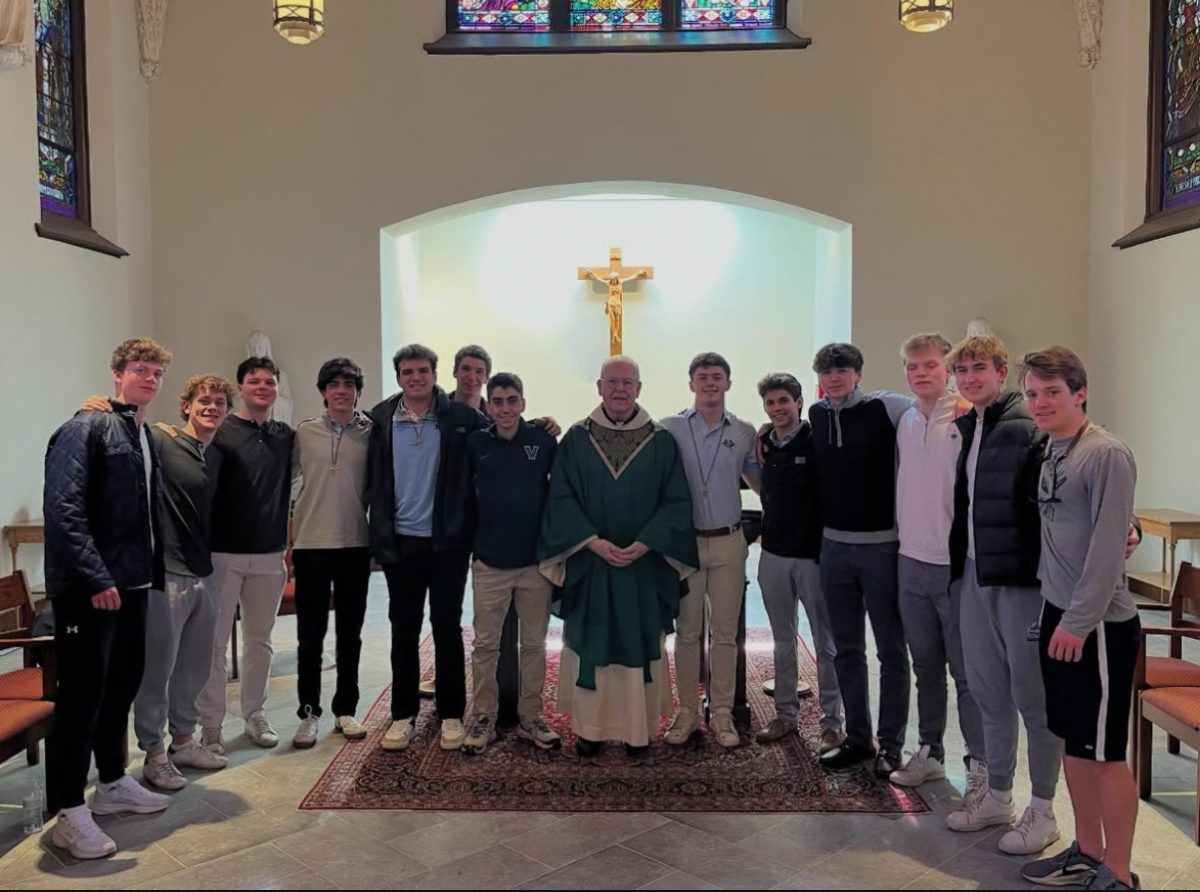
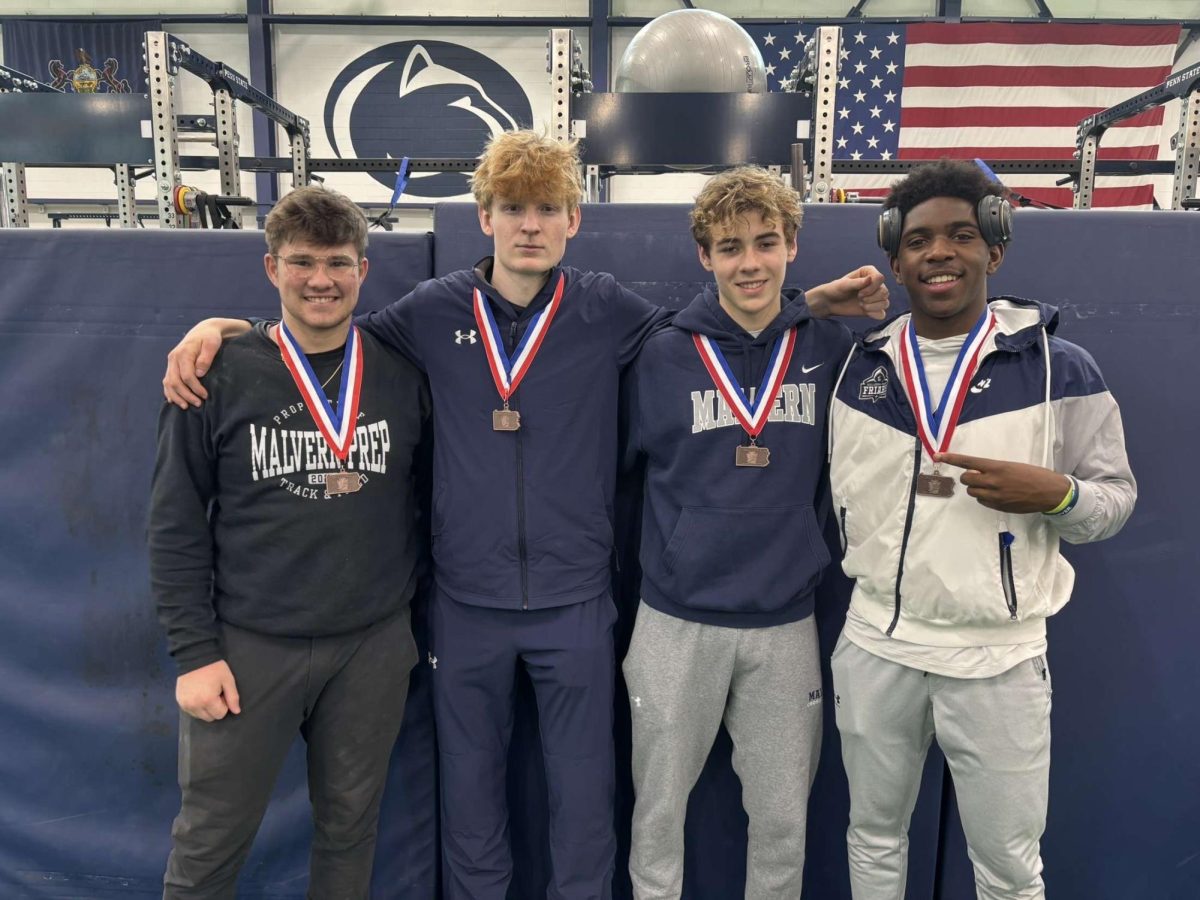
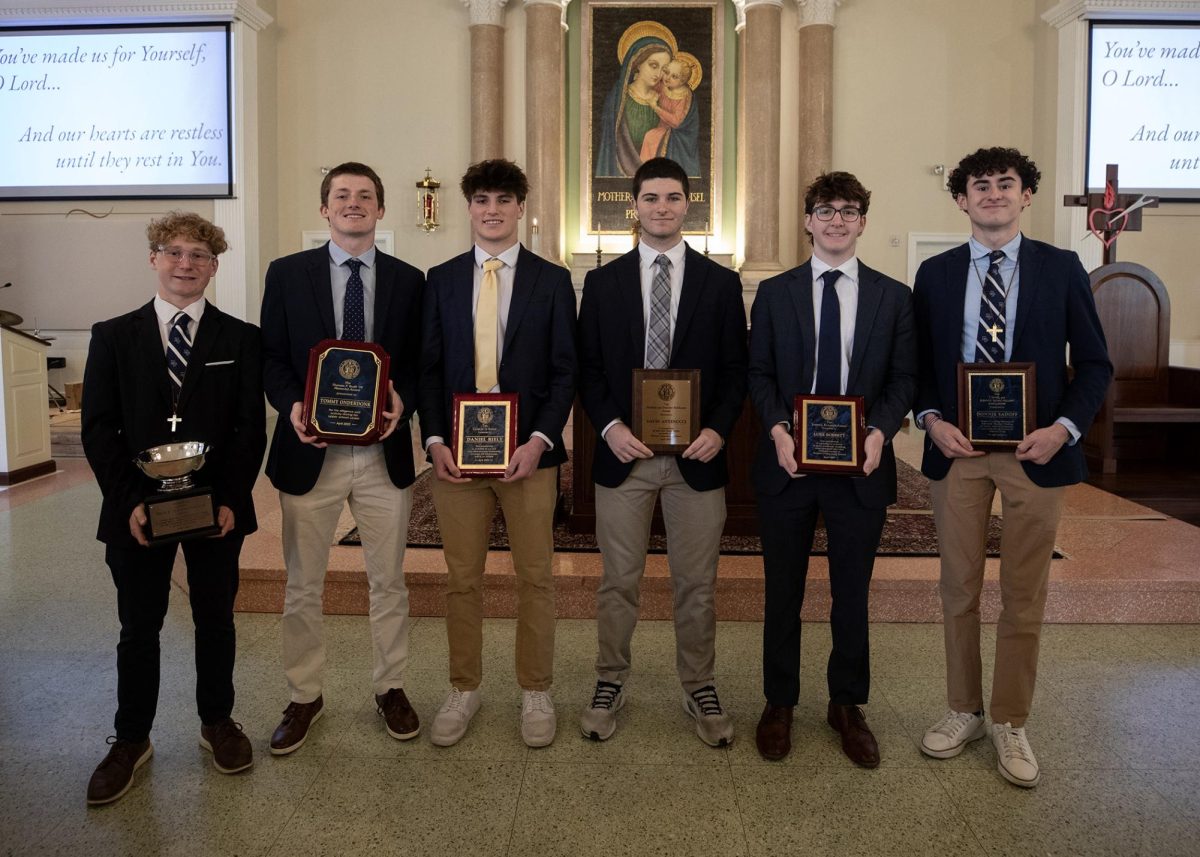
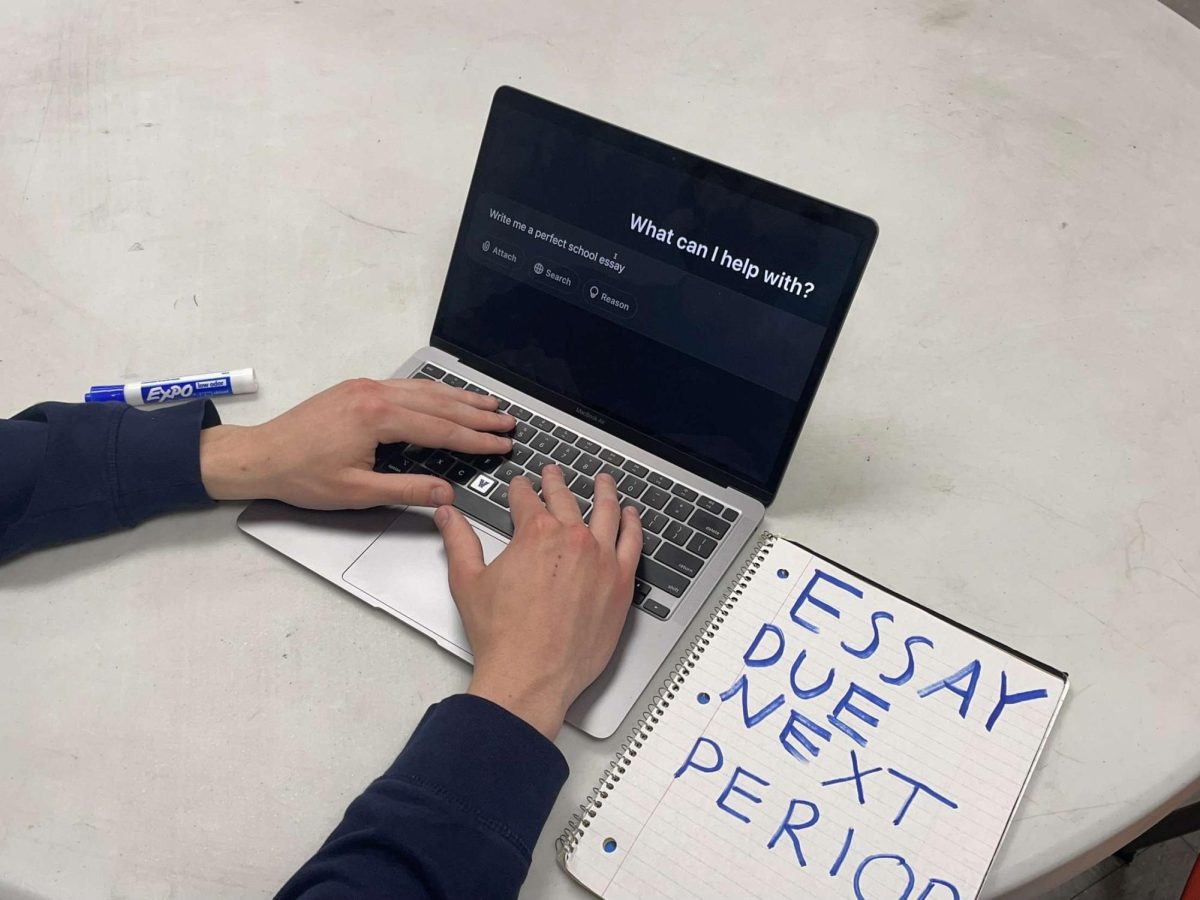
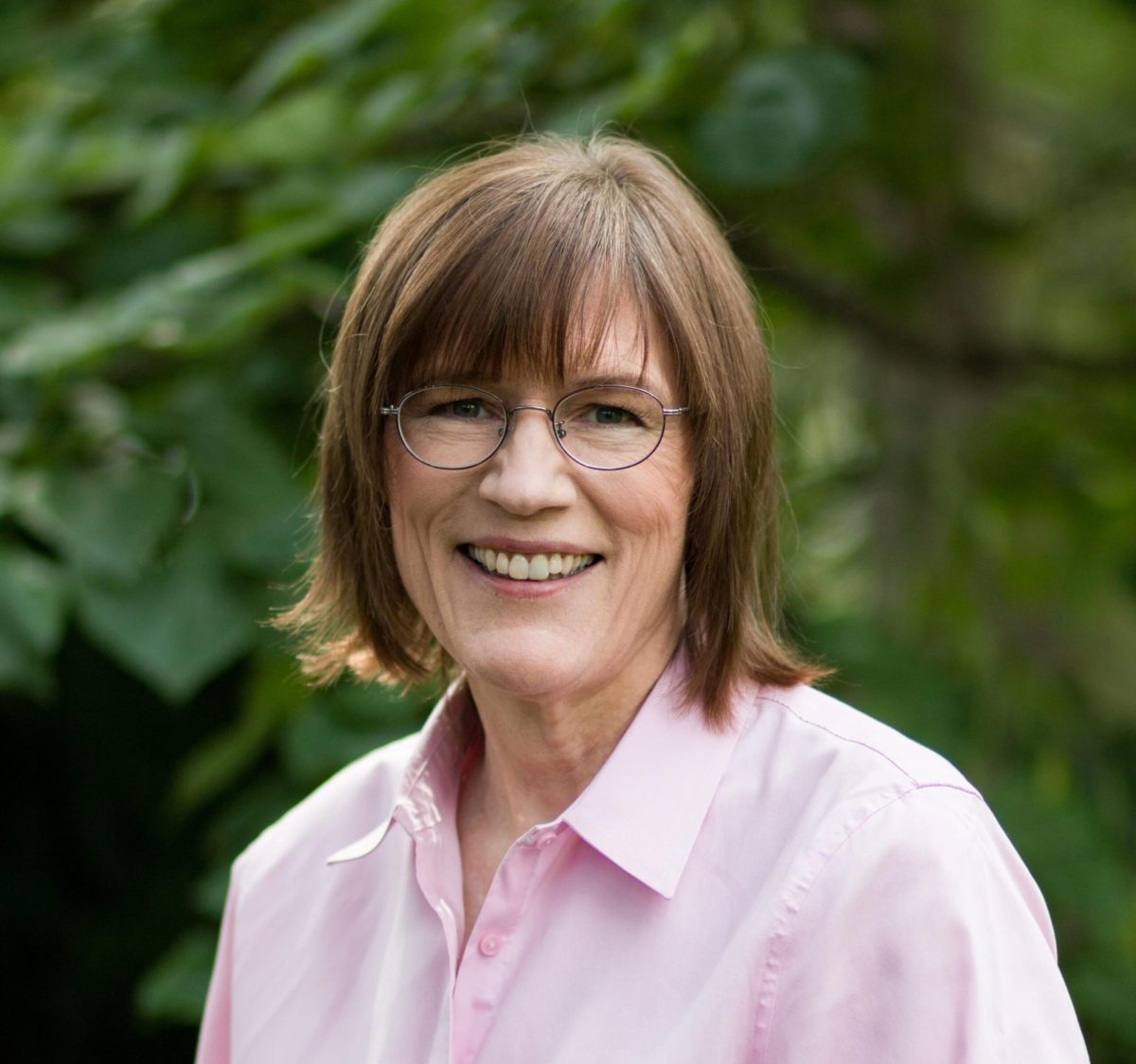
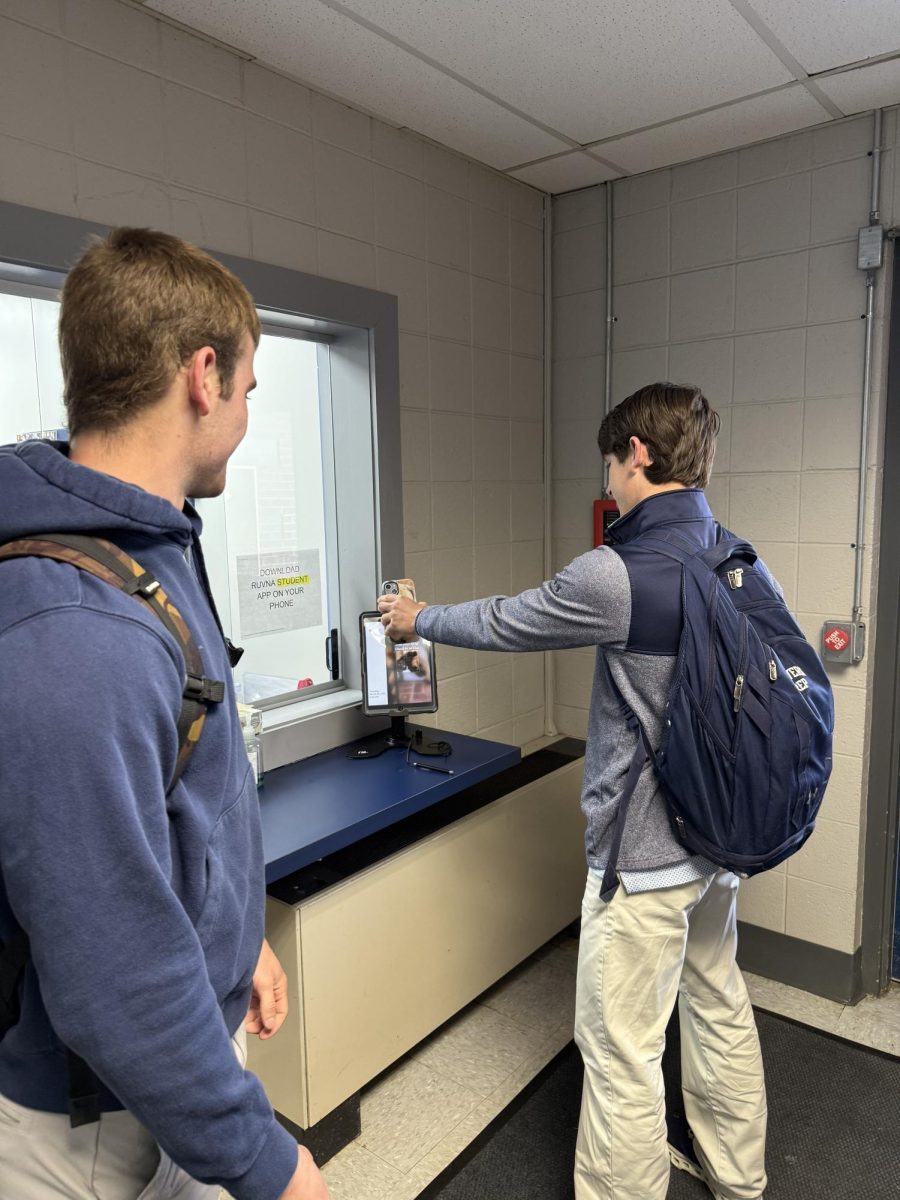
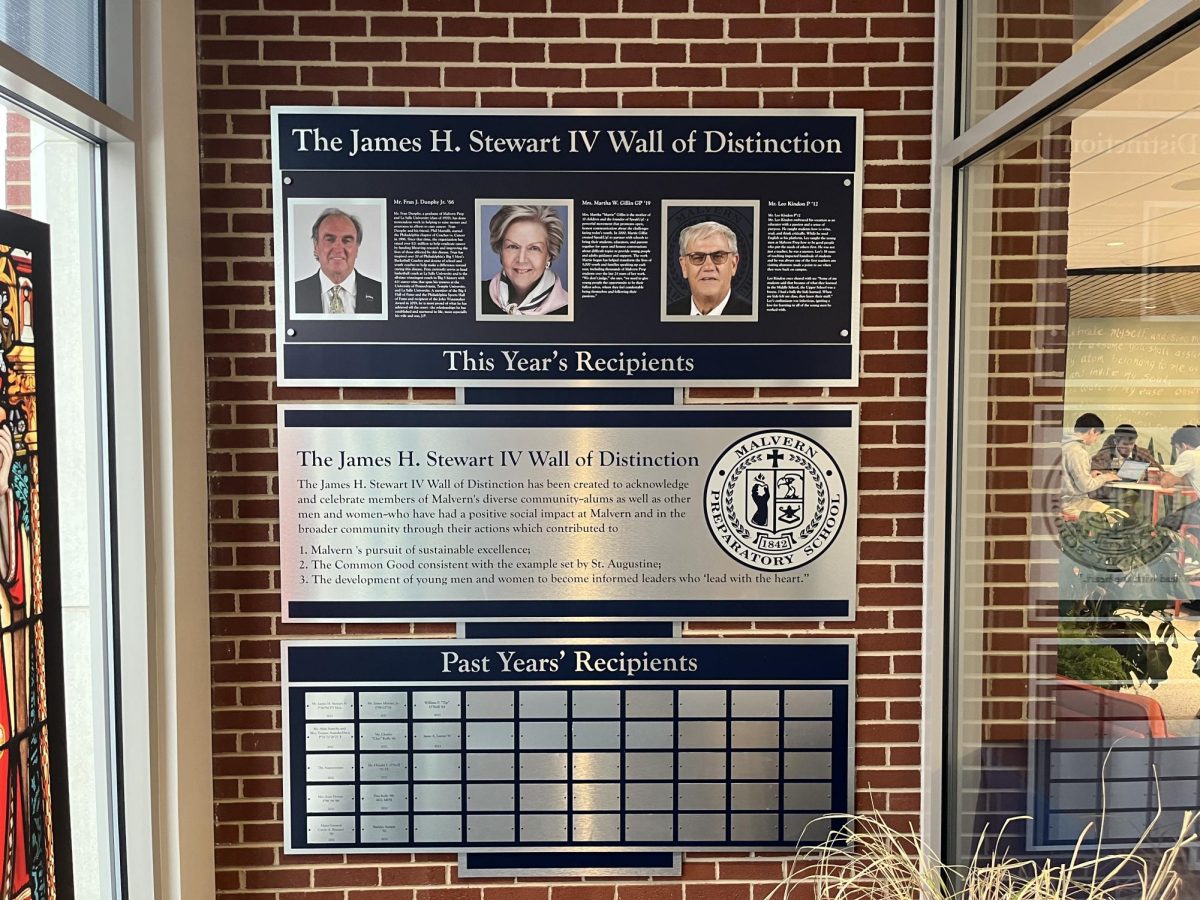
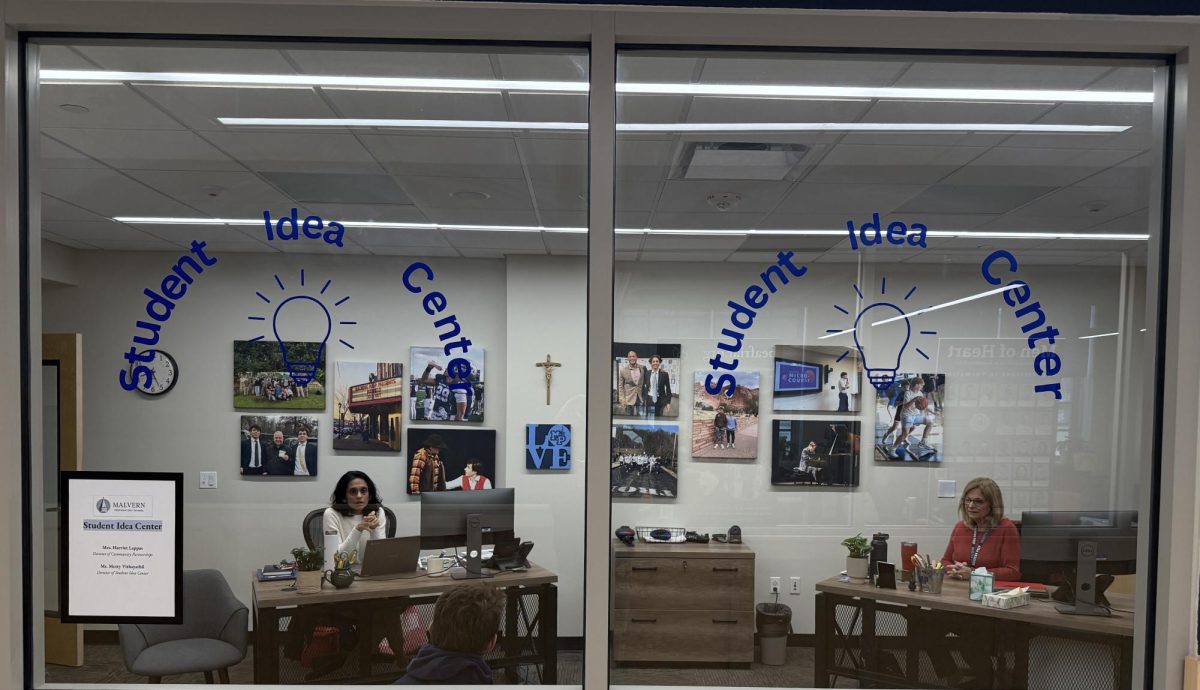
Matthew Lanetti '15 • Feb 5, 2017 at 1:14 pm
I love this shift. It more accurately reflects how the real world of science functions. In a college level physics class you will certainly encounter Avogadro’s number; so it doesn’t make much sense to assign very universal ideas to a single subject. To really understand how things work it is best to know not just the chemistry or the physics but to understand how the chemistry and the physics relate to each other and the links between them.
Kevin Quinn • Feb 6, 2017 at 10:39 pm
Thank you for the great article! You did a great job of capturing the rationale and the method for the changes that are going on. Its also great to see a distinguished alum in Matt Lanetti sharing some positive feedback. Its great to hear from you Matt! Thanks for the well written article Dan!